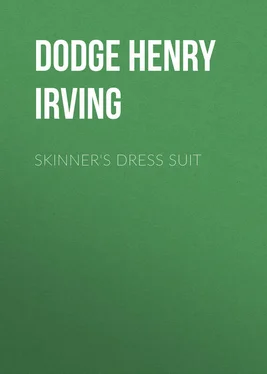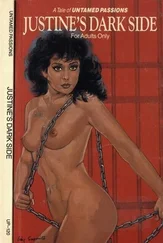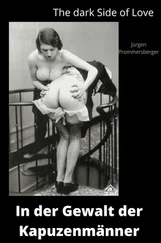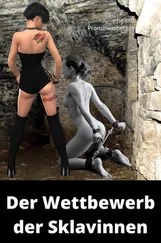Henry Dodge - Skinner's Dress Suit
Здесь есть возможность читать онлайн «Henry Dodge - Skinner's Dress Suit» — ознакомительный отрывок электронной книги совершенно бесплатно, а после прочтения отрывка купить полную версию. В некоторых случаях можно слушать аудио, скачать через торрент в формате fb2 и присутствует краткое содержание. Издательство: Иностранный паблик, Жанр: foreign_antique, foreign_prose, на английском языке. Описание произведения, (предисловие) а так же отзывы посетителей доступны на портале библиотеки ЛибКат.
- Название:Skinner's Dress Suit
- Автор:
- Издательство:Иностранный паблик
- Жанр:
- Год:неизвестен
- ISBN:нет данных
- Рейтинг книги:5 / 5. Голосов: 1
-
Избранное:Добавить в избранное
- Отзывы:
-
Ваша оценка:
- 100
- 1
- 2
- 3
- 4
- 5
Skinner's Dress Suit: краткое содержание, описание и аннотация
Предлагаем к чтению аннотацию, описание, краткое содержание или предисловие (зависит от того, что написал сам автор книги «Skinner's Dress Suit»). Если вы не нашли необходимую информацию о книге — напишите в комментариях, мы постараемся отыскать её.
Skinner's Dress Suit — читать онлайн ознакомительный отрывок
Ниже представлен текст книги, разбитый по страницам. Система сохранения места последней прочитанной страницы, позволяет с удобством читать онлайн бесплатно книгу «Skinner's Dress Suit», без необходимости каждый раз заново искать на чём Вы остановились. Поставьте закладку, и сможете в любой момент перейти на страницу, на которой закончили чтение.
Интервал:
Закладка:
Henry Irving Dodge
Skinner's Dress Suit
CHAPTER I
SKINNER ASKS FOR A RAISE
Skinner had inhabited the ironbound enclosure labeled "CASHIER" at McLaughlin & Perkins, Inc., so long, that the messenger boys had dubbed him the "cage man." To them he had become something of a bluff. Skinner's pet abomination was cigarettes, and whenever one of these miniatures in uniform chanced to offend that way, he would turn and frown down upon the culprit. The first time he did this to Mickey, the "littlest" messenger boy of the district, who was burning the stub of a cigarette, Mickey dropped the thing in awe.
But Jimmie of the Postal said, "Don't be scared of him ! He's locked up in his cage. He can't get at you!"
So the sobriquet "cage man" was evolved from this chance remark, and the wit of the thing had spread until everybody had come to think of Skinner as the "cage man" – a fact which did not add greatly to his dignity.
But on this particular morning the "cage man" was even more harmless than usual. There was n't a frown in him. He sat at his tall desk and stared abstractedly at the open pages of his cash-book. He did n't see the figures on the white page, and he paid no more heed to the messenger boys, whose presence he was made aware of by the stench of burning paper and weed, than he did to the clicking, fluttering, feminine activity in the great square room to his left, over which he was supposed to keep a supervising eye.
Skinner had stage fright! He had resolved to ask McLaughlin for a raise. Skinner was afraid of McLaughlin – not physically, for Skinner was not afraid of anybody that way. He was afraid of him in the way that one man fears another man who he has hypnotized himself into believing holds his destiny in his hands. If Skinner had been left to himself, he would never have asked for a raise, for no advance he could hope to get could compensate him for the stage fright he'd suffered for months from thinking about it. No one knew how often he had closed his cash-drawer, with resolution to go to McLaughlin, and then had opened it again weakly and gone on with his work. The very fact that he was afraid disgusted Skinner, for he despised the frightened-rabbit variety of clerk.
It was his wife! She made him do it! Skinner's wife was both his idol and his idolater. He 'd never been an idol to any one but her. No one but Honey had ever even taken him seriously. Even the salesmen, whom he paid off, looked on him only as a man in a cage. But to his wife he was a hero. When he entered their little house out in Meadevllle, he entered his kingdom. All of which made it imperative with Skinner to do his very utmost to "make good" in Honey's eyes.
The Skinners had a little bank account for which they had skimped and saved. Honey had denied herself new gowns, and Skinner had gone her one better. If she would not spend money on herself, then he would not spend money on himself. He had gone positively shabby. But Skinner did n't mind being shabby. The sacrifice he was making for Honey and the bank account, the self-denial of it, had exalted his shabbiness into something fine, – had idealized it, – until he'd come to take a kind of religious pride in it. Skinner and his wife had watched their little bank account grow, bit by bit, from ten dollars up. It had become an obsession with them. They had gone without many little things dear to their hearts that it might be fattened. Surely, it was a greedy creature! But, unlike most greedy creatures, it gave them a great deal of comfort. It was a certain solid something, always in the background of their consciousness. It stood between them and the dread of destitution. Thus it had become a sacred thing, and they had tacitly agreed never to touch it.
But what made it imperative for Skinner to ask for a raise was, he had been bragging. Skinner was only human, and being a hero to his wife had made him a little vain. He was a modest man, a first-rate fellow, but no man is proof against hero-worship. He had bragged – a little at first – about his value to the firm, which had increased the worship. He had given his wife the idea that he was a most important man in McLaughlin & Perkins, Inc., that he had only to suggest a raise in order to get it. They could n't do without him.
Several times Honey had hinted to Skinner that the firm was slow to show its appreciation of his indispensable qualities; but on such occasions Skinner had urged that the psychological moment had not yet arrived, that the wave of prosperity that was spreading over the country had not up to the moment engulfed his particular firm. But one evening, he ill-advisedly admitted that the waves of the aforesaid prosperity were beginning to lap the doorstep of McLaughlin & Perkins, Inc. That was enough! Next morning Honey gently urged that further delay would be inexcusable, that the bank account was n't growing fast enough to suit her, that he must ask for a raise.
Now that Honey had put it up to him to "make good," – to act, – doubt entered Skinner's heart. He argued that, if the firm had considered him worth more money, they would have advanced him. But on the other hand was the well-known meanness of the partners. Nothing short of a threat to quit by one or another of their valuable men had ever served to pry them loose from any cash.
Presently Skinner stepped out of his cage and locked the door behind him. As he entered the long passageway that led to McLaughlin's office. Skinner felt like a man who had emerged from a bath-house and was about to traverse a long stretch between himself and the icy water into which he was to plunge. Within a few paces of the great glass door marked "MR. MCLAUGHLIN," Skinner hesitated and listened, hoping to hear voices, which would give him an excuse to retreat. But there was no sound. Skinner tapped at the door, turned the knob, and took the plunge into the icy water!
When he came to the surface and partially recovered his senses, he found himself facing McLaughlin, president of McLaughlin & Perkins, Inc. McLaughlin sat at his desk, rotund, red-faced, and pig-eyed, his stubbly hair bristling with chronic antagonism. Those pig eyes and that stubbly hair were a great asset to McLaughlin when it came to an "argument." They could do more fighting than his tongue or his fists, for that matter.
"Hello, Skinner," he said; then waited for the cashier to state his business.
Skinner had outlined a little argument, but he forgot it, and to cover his confusion he dragged a chair close to his employer's desk, a proceeding which rather puzzled the boss.
"What's the row?" he asked.
On his way down the long passageway that led to McLaughlin's office, Skinner had made up his mind to "demand" a raise. Then he thought it might be better to "ask" for a raise. Then he decided on second thoughts, that to "demand" would be a little too stiff, while to "ask" would put him in the suppliant class. So he compromised with himself and concluded merely to "suggest" a raise.
"Mr. McLaughlin, I came in to see how you felt about giving me a little more money."
McLaughlin flushed and swung around in his swivel-chair with a ready retort on his lips; but, meeting the quiet, gray eyes of his subordinate, he said simply, "Raise your salary?"
Skinner nodded. "I just wanted to know how you feel about it."
"You know how we feel about it. We have n't done it, have we?"
Skinner saw that the "merely suggest" scheme did n't work. He might have urged as a reason for his demand his value to the house, but, like most men, he was a good advocate for others but a poor advocate for himself. Besides, if he did so, he would give McLaughlin a chance to depreciate his services, which would be very humiliating. At the mere thought of it he became nervous, and decided to plead rather than argue.
Читать дальшеИнтервал:
Закладка:
Похожие книги на «Skinner's Dress Suit»
Представляем Вашему вниманию похожие книги на «Skinner's Dress Suit» списком для выбора. Мы отобрали схожую по названию и смыслу литературу в надежде предоставить читателям больше вариантов отыскать новые, интересные, ещё непрочитанные произведения.
Обсуждение, отзывы о книге «Skinner's Dress Suit» и просто собственные мнения читателей. Оставьте ваши комментарии, напишите, что Вы думаете о произведении, его смысле или главных героях. Укажите что конкретно понравилось, а что нет, и почему Вы так считаете.











